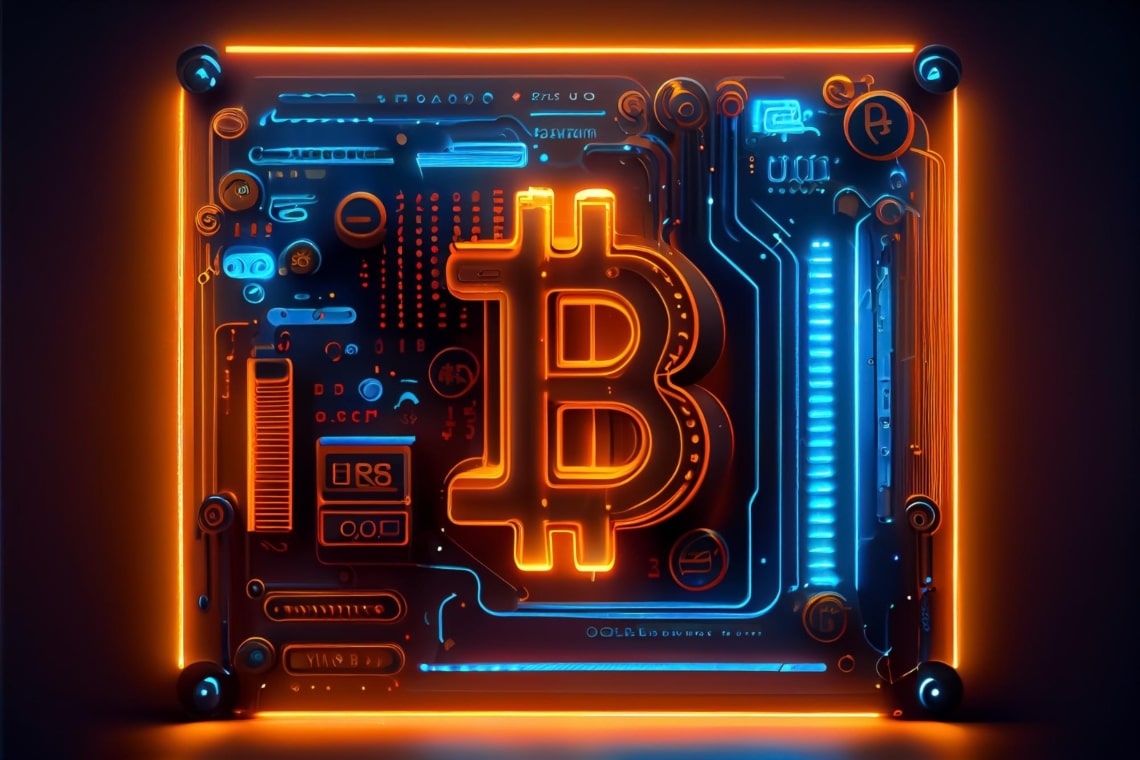Bitcoin, the leading cryptocurrency, is facing an unprecedented threat due to the intensification of regulation on miners, which could lead to protocol-level censorship.
The looming risk stems from the increasing pressure on miners to monitor and filter transactions associated with addresses linked to criminal activities.
Summary
The US regulatory authority closely monitors Bitcoin mining
Although such cases are currently rare, the evolution of the regulatory landscape suggests a potential shift towards common practices in the future.
The US regulatory authorities, in particular the Office of Foreign Assets Control (OFAC), are closely monitoring the cryptocurrency space.
Although miners are not currently the main target, legal experts warn that providing services to individuals on sanctions lists could be considered as material support to sanctioned entities, prompting sanctions to be imposed on service providers.
According to Ben Hutten, partner at Orrick law firm, miners should proceed with caution given the regulatory context. The potential imposition of sanctions on service providers signals a growing need for vigilance within the mining community.
Christopher Bendiksen, head of bitcoin research at CoinShares, predicts that some miners may choose to censor transactions associated with addresses listed by OFAC, considering it a predictable cost of doing business in the Western world.
This change could usher in a new era for Bitcoin, introducing protocol-level censorship.
The first warning signs have emerged, with some miners voluntarily implementing anti-money laundering measures on the chain.
A pseudonymous bitcoin researcher has identified six transactions excluded by the main mining pools – ViaBTC, F2Pool, and Foundry – due to their association with addresses listed in the OFAC sanctions list.
Although the researcher believes that this is an isolated incident, it raises concerns about potential future censorship practices.
The transactions involved addresses attributed to Chinese sellers of fentanyl precursors and a Russian-sanctioned OTC service, SUEX.
Although in the end the transactions were included in the Bitcoin blockchain by other miners, the intentional filtering by F2Pool has sparked debates on the ethics and implications of transaction censorship.
The regulatory pressures of miners
Miners are increasingly feeling the pressure from regulatory bodies such as OFAC and FinCEN. The recent actions against cryptocurrency mixers, exemplified by Tornado Cash, highlight the innovative approach of regulators in combating illicit activities in the cryptocurrency space.
The designation by FinCEN of cryptocurrency mixing as a primary money laundering concern means a broader application of regulatory measures.
While individual miners are currently exposed to minimal risks, mining services that engage in transaction splitting may be subject to regulatory scrutiny.
Hutten observes that compliance with rules and regulations is essential for mining services to avoid being classified as money transmitters in the United States.
The evolving relationship between US regulatory authorities and the cryptocurrency sector is exemplified by the proactive measures taken by stablecoin Tether.
Tether has a history of freezing addresses linked to crime and has recently announced a collaboration with the United States intelligence services and the FBI to improve regulatory compliance.
In 2021, Marathon Digital briefly experimented with transaction filtering for sanctioned addresses, highlighting the impracticality and unpopularity of such functions.
Industry experts emphasize the inevitability of compliance with US government regulations, recognizing that attempting to resist regulatory pressures can be futile.
The censorship of transactions poses economic problems for miners, as the rejection of transactions allows other miners to claim the associated fees.
However, the potential repercussions of non-compliance with US regulatory authorities could be more significant.
The emergence of an unofficial consensus among the main mining pools to filter specific transactions could lead to a de facto 51% attack on Bitcoin, resulting in a potential chain split.
Hypothetical scenarios for mining
The former White House director Carole House has even suggested that miners could collectively agree not only to avoid mining transactions listed in the OFAC list, but also to orphan blocks containing such transactions.
This hypothetical scenario could be perceived as an attack on Bitcoin’s 51%, highlighting the complexities and potential disruptions posed by regulatory pressures.
In conclusion, the future of Bitcoin is uncertain due to the increase in regulatory control over miners. The delicate balance between compliance and maintaining the decentralized ethics of cryptocurrencies raises critical questions about the trajectory of the industry.
Miners must navigate this evolving landscape, weighing the economic implications of transaction censorship against the legal and regulatory risks associated with non-compliance.


